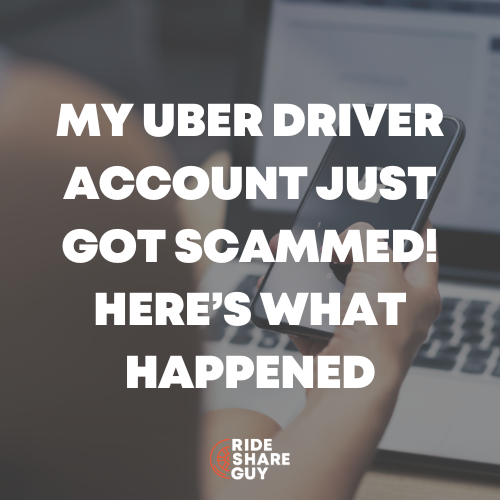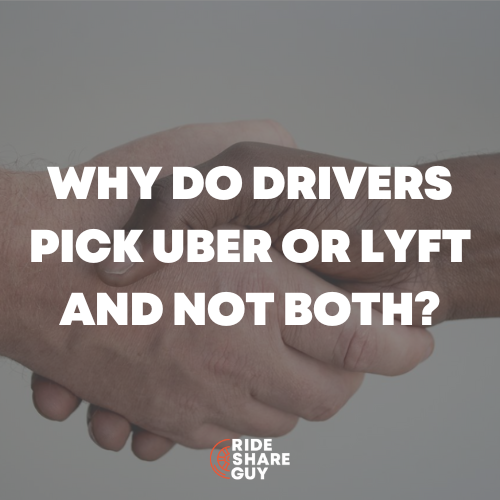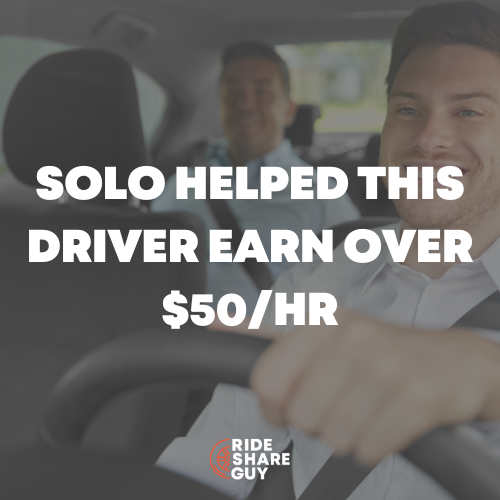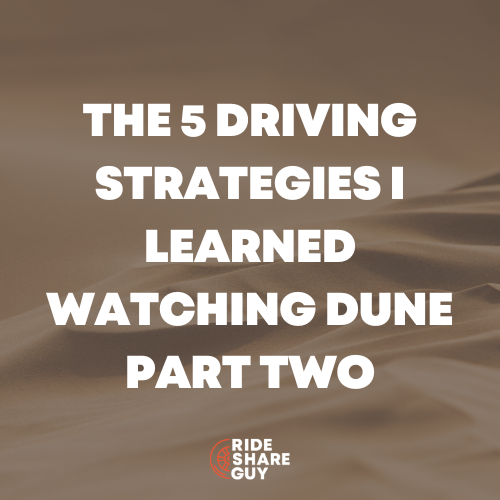One of the toughest parts about studying a company like Uber is variability – driver experience, pay, satisfaction, etc. all vary greatly depending on which drivers you talk to. This means you’d have to talk to a wide variety of drivers to really get a pulse on what they’re thinking. Recently, we spoke to author Alex Rosenblat about her book, Uberland: How Algorithms are Rewriting the Rules of Work. Below, senior RSG contributor John Ince summarizes why you must read Uberland.
Get your first audiobook with Audible for free here (and start listening to Uberland right away!).
I’ve now been writing the weekly news roundups at the Rideshare Guy for over four years. For much of that time, I’ve also been a part time driver and seen firsthand the type of questionable tactics and practices used by Uber (and Lyft) to manipulate driver behavior, all the while calling drivers “independent contractors.” This kind of verbal jiu jitsu saves the companies billions that they would other wise have to pay drivers in maintenance, paid vacations, insurance and so on. During much of this period, I’ve been collecting stories and data and I’ve been quietly and methodically putting it all together for a book that I had intended to call, “Uber Scheme: Ripoff Reimagined.”
But after reading Alex Rosenblat’s book, Uberland: How Algorithms are Rewriting the Rules of Work, I feel a sense of relief. Why? Because I no longer have to write my book. Ms. Rosenblat has done it for me. Quite simply: this book is a masterpiece.

Rosenblat synthesizes stories of drivers, with detailed research and a clear headed understanding of the emerging gig economy, into a page turner that has all the elements of a best selling spy thriller. Rosenblat is the spy here, piecing together all the evidence to create a powerful, but balanced, case against these companies that disrupted transportation, enriched themselves all on the backs of drivers who have little to show for their labors other than aching bodies, dented cars, and a income stream that falls below the minimum wage.
Here are six reasons why this book is a must read if you really want to understand what being an Uber driver is all about.
1) The research is thorough and exhaustive
Rosenblat embarked upon a four year journey with Uber drivers to truly understand this gig. The thoroughness of her research comes through on nearly every page. This is how she describes this journey:
For nearly four years, my job has mainly been to ride around in cars with strange men and sometimes strange women, studying Uber drivers from mid-2014 through the winter of 2018 across more than 25 cities and traverse more than 5,000 miles of cars in the United States and Canada, from Juneau to Montreal. In the traditions of multisite ethnography and immersive journalism, I’ve observed the culture of work and overland in more than a dozen major cities like New York and Atlanta.
2) Rosenblat paints a balanced picture – showing how driving for Uber has been a lifesaver for countless drivers who otherwise would have no option for making money
Rosenblat is an accomplished researcher, sociologist and journalist, and as such she knows a case is most powerful when it is balanced. This book isn’t a diatribe. Her choice of words is measured and when she makes a point, she backs it up with thorough research. Most importantly, she gets that Uber and Lyft, for all their shortcomings, have literally been lifesavers for millions of drivers who otherwise would have had no source of income to support themselves and their families.
3) The book unmasks the face of algorithmic exploitation
In Uberland, Rosenblat has unmasked the current face of exploitation. Every generation has it own forms of exploitation, and here we have an intimate portrait of the most recent form. It’s a form so subtle and so insidious that most people, especially passengers, have no idea it’s really happening. But in the book, Rosenblat goes into painstaking detail to explain exactly how Uber’s algorithms control the behavior of the people it calls its “partners”, but who it legally classifies as independent contractors. She even includes screenshots of texts and emails from the company that show how Uber manipulates drivers, and in some cases cheats them out of fees or fares that they are due.
Uber not only exploits the drivers, they also exploit all the gray areas of the law. Rosenblat shines a light on the deceptions that are at the heart of how drivers are lured onto the platform with inflated expectations of earnings. She understands how Uber has taken a relatively innocuous process of rating your driver and turned it into a powerful management tool. Gone are the human managers, gone are the performance appraisals. In their place are ratings from one to five stars, coming from people who barely spend any time with the driver they are rating. She captures how drivers are intimidated, managed and sometimes “deactivated” (Uberspeak for “fired”) on the basis of ratings and feedback from passengers.
At the heart of the exploitation game is the opportunity to make a fortune. Here, the wealth disparities that have resulted on this platform are stark. Former Uber CEO Travis Kalanick is now worth over $8 billion. Let that sink in. If you stacked dollar bills on top of each other, 8 trillion would reach to the moon and back (thanks to reader John for letting us know it’s 8 TRILLION dollar bills!). Now multiply that by a thousand. Now ask yourself, did TK work a million times harder than the guy who works sixteen hour days and sleeps in his car between shifts?
4) It illuminates the dehumanizing effect of Uber’s managerial structure
Throughout the book, Rosenblat captures the absurdity of having a small team of coders having the power to control the behavior of millions of drivers simply by using technology as a motivator. She explores the psychological dimensions of being managed by a set of algorithms created by some faceless coder, who is carrying out the wishes of a faceless executive who can’t wait to cash out his stock in the long rumored IPO.
Rosenblat also captures the dehumanizing aspects of the job, where you’re told what to do and what not to do through sterile texts and emails that are also going out to some untold number of other drivers simultaneously. It might not feel so exploitive if there was some human being to complain to. But until recently, Uber didn’t even have a number to call for customer service. Now when you call that number, you seldom get satisfaction from your call.
In Uberland, Rosenblat blows the cover of the gig economy. She exposes the deception – these are not neutral apps that simply connect drivers with passengers. No, Uber is not just a broker of rides. It’s a middleman – or as the author calls it in chapter 4 – a shady middleman. It is an entire governing structure that is so confusing and opaque that drivers are left confused, dazed and sometimes cheated by the dizzying array of ways fares are calculated and fees are deducted. Drivers are often unaware they’re being controlled, often nudge by nudge, a process as subtle as it is insidious.
5) Decodes Uber’s doublespeak
Rosenblat has unmasked the faceless dictators who now rule the gig economy and rule it with an iron fist. Adding insult to injury, while Uber’s algorithms exert a powerful level of control, Uber’s lawyers and political operatives have successfully argued in court cases and before legislators that these people are not employees – but rather independent contractors. It’s an Orwellian masterpiece.
In Uberland, Rosenblat gets the game Uber is playing with drivers. She sees though the smokescreen and realizes the company got where they are by employing all kinds of slippery and shady practices. She explains how the rules of the game are always changing and how drivers are on their own to try to understand the latest pricing scheme and how it may silently be stealing money from their account largely by stealth. Consider the following passage, from Chapter 4 – the Shady Middleman
Starting in 2016 Uber quietly implemented a practice called upfront pricing, which supposedly fostered greater transparency. Passengers could now see in advance what a fare would cost based upon Uber’s “best guess” or estimate of the trip tally rather than waiting for the tally at the end. The problem: not everything about upfront pricing was so up front. Months before Uber finally admitted that it was charging passengers a higher fare while paying drivers based on a lower fare, drivers were raising an alarm at discrepancies they were noticing. Some drivers tried to crowd-source data about upfront pricing from other drivers online, as well as through in person meetings with labor organizers like the Independent Drivers Guild. The amounts we observed ranged from small discrepancy like a few dollars to differences that were much larger large. Meanwhile Uber declares that all the discrepancies generally evened out, but it refused to reveal how often the house won. So drivers, passengers, researchers and reporters started investigating …
6) It’s a fascinating read
Put simply, Alex Rosenblat’s book is a pleasure to read. Not only does she capture the minute details that define the complex and somewhat contradictory role of drivers. One of the reviews on Amazon puts it better than I can,
This book is a marvelous inside look at what it’s like to drive for Uber, and by extension, any Silicon Valley gig economy platform. The author claims she tells her children Uber stories at bedtime – and I believe her. She weaves many a tale about the rides she took in years of research (over 5,000 miles in the U.S. and Canada). The author illuminates a myriad of problems associated with having an algorithm as your boss, where there is rarely a real human to help you resolve issues. Although Uber touts the independence of their drivers, the author demonstrates that independence is mostly an illusion and manipulation abounds. I was expecting a typical academic tome, and what I got instead was a really terrific read. I highly recommend Uberland.
Get your first audiobook with Audible for free here (and start listening to Uberland right away!).
Readers, have you read or do you think you will read Uberland?
-John @ RSG




